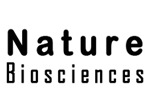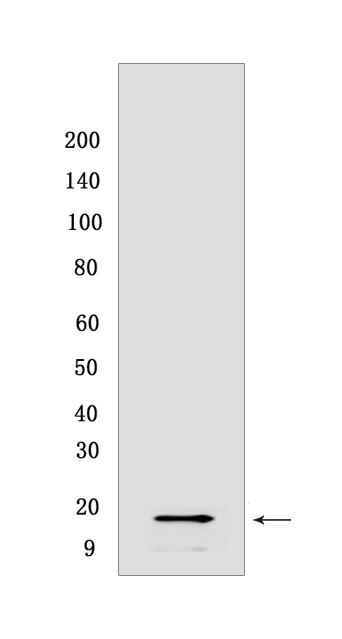IFITM1 Mouse mAb[77CO]Cat NO.: A26615
Western blot(SDS PAGE) analysis of extracts from TF-1 cells lysates.Using IFITM1 mouse mAb IgG [77CO] at dilution of 1:1000 incubated at 4℃ over night.
Product information
Protein names :IFITM1,CD225,IFI17,IFM1_HUMAN,Interferon-induced transmembrane protein 1
UniProtID :P13164
MASS(da) :13,964
MW(kDa) :17
Form :Liquid
Purification :Protein A purification
Host :mouse
Isotype :IgG
sensitivity :Endogenous
Reactivity :Human,Mouse
- ApplicationDilution
- 免疫印迹(WB)1:1000-2000,
- 免疫组化(IHC)1:100
- 免疫荧光(ICC/IF) 1:100
- The optimal dilutions should be determined by the end user
Specificity :Antibody is produced by immunizing animals with a synthetic peptide at the sequence of human IFITM1.
Storage :Antibody store in 10 mM PBS, 0.5mg/ml BSA, 50% glycerol. Shipped at 4°C. Store at-20°C or -80°C. Products are valid for one natural year of receipt.Avoid repeated freeze / thaw cycles.
WB Positive detected :TF-1 cells lysates
Function : IFN-induced antiviral protein which inhibits the entry of viruses to the host cell cytoplasm, permitting endocytosis, but preventing subsequent viral fusion and release of viral contents into the cytosol. Active against multiple viruses, including influenza A virus, SARS coronaviruses (SARS-CoV and SARS-CoV-2), Marburg virus (MARV), Ebola virus (EBOV), Dengue virus (DNV), West Nile virus (WNV), human immunodeficiency virus type 1 (HIV-1) and hepatitis C virus (HCV) (PubMed:26354436, PubMed:33270927). Can inhibit: influenza virus hemagglutinin protein-mediated viral entry, MARV and EBOV GP1,2-mediated viral entry and SARS-CoV and SARS-CoV-2 S protein-mediated viral entry. Also implicated in cell adhesion and control of cell growth and migration (PubMed:33270927). Inhibits SARS-CoV-2 S protein-mediated syncytia formation (PubMed:33051876). Plays a key role in the antiproliferative action of IFN-gamma either by inhibiting the ERK activation or by arresting cell growth in G1 phase in a p53-dependent manner. Acts as a positive regulator of osteoblast differentiation. In hepatocytes, IFITM proteins act in a coordinated manner to restrict HCV infection by targeting the endocytosed HCV virion for lysosomal degradation (PubMed:26354436). IFITM2 and IFITM3 display anti-HCV activity that may complement the anti-HCV activity of IFITM1 by inhibiting the late stages of HCV entry, possibly in a coordinated manner by trapping the virion in the endosomal pathway and targeting it for degradation at the lysosome (PubMed:26354436)..
Tissue specificity :Bone (at protein level). Levels greatly elevated in colon cancer, cervical cancer, esophageal cancer and ovarian cancer. Expressed in glioma cell lines..
Subcellular locationi :Cell membrane,Single-pass membrane protein. Lysosome membrane.
IMPORTANT: For western blots, incubate membrane with diluted primary antibody in 1% w/v BSA, 1X TBST at 4°C overnight.


